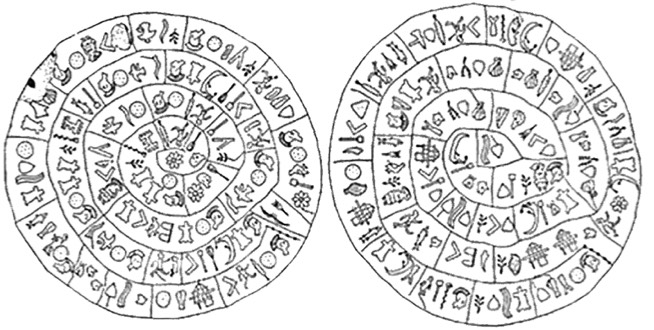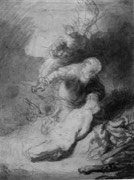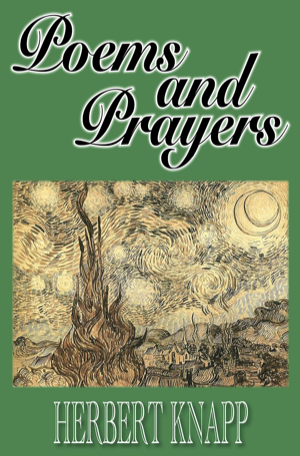Poems and Prayers
by Herbert Knapp
The imagination of the poet is a reflection of his spiritual life. Myth and metaphor are the currency both of religion and poetry. Poetry is one of the most powerful domains in which religious expression takes place. And the same is true of music, drama, painting, and dance. Not all artists are religious persons or have a religious interest. But even if they do not and perhaps especially if they do not, art serves as a religion substitute.
by Herbert Knapp
The imagination of the poet is a reflection of his spiritual life. Myth and metaphor are the currency both of religion and poetry. Poetry is one of the most powerful domains in which religious expression takes place. And the same is true of music, drama, painting, and dance. Not all artists are religious persons or have a religious interest. But even if they do not and perhaps especially if they do not, art serves as a religion substitute.
—Michael Wyschogrod, The Body of Faith
Purchase Poems and Prayers
Or read for free with Kindle Unlimited
Excerpt:
Poems and Prayers
by Herbert Knapp
The Power of Names
Nomen est omen
I’m not here to play poetical games
like Mallarmé or the Supreme Court,
all emanations and penumbras,
nor political games like the Hollywood Ten.
I am here, my friends, to name names.
Not of the clans and captains confronting Troy,
Nor those of those blessed Biblical begetters.
My mother’s galpals’ names are those I name.
Party girls, they met at Sunday school—
King David’s Daughters, called K.D.’s for short.
Violet, Louise, Rowena, Thelma,
Issy, two Edwinas, Roxie, Alma,
Melva, Reba, Ann, Louella, Gretchen,
Isibel, Hortense, LaWeva, Nellie,
Julie, Helen, Lilly, Mildred, Dot,
Elva, Cora, Bev, Loree, Leona
Emaline, Divona, Madge, and Maude.
Twenty-somethings in the nineteen-twenties.
All but Maude, who lied about her age
and had to work at being young and peppy.
Nomen est omen
I’m not here to play poetical games
like Mallarmé or the Supreme Court,
all emanations and penumbras,
nor political games like the Hollywood Ten.
I am here, my friends, to name names.
Not of the clans and captains confronting Troy,
Nor those of those blessed Biblical begetters.
My mother’s galpals’ names are those I name.
Party girls, they met at Sunday school—
King David’s Daughters, called K.D.’s for short.
Violet, Louise, Rowena, Thelma,
Issy, two Edwinas, Roxie, Alma,
Melva, Reba, Ann, Louella, Gretchen,
Isibel, Hortense, LaWeva, Nellie,
Julie, Helen, Lilly, Mildred, Dot,
Elva, Cora, Bev, Loree, Leona
Emaline, Divona, Madge, and Maude.
Twenty-somethings in the nineteen-twenties.
All but Maude, who lied about her age
and had to work at being young and peppy.
Some of their names have gone the way of spats,
the Hi-Ho Club, and veils on women’s hats,
of mandolins, plus-fours, and bathtub gin.
Pronounce one though, and you will feel its power—
its wonder-working power.
I can’t explain but know that if you change
Juliet to Julie you have got
a different play. And also, although Abram
looked the same when God renamed him,
he was not.
the Hi-Ho Club, and veils on women’s hats,
of mandolins, plus-fours, and bathtub gin.
Pronounce one though, and you will feel its power—
its wonder-working power.
I can’t explain but know that if you change
Juliet to Julie you have got
a different play. And also, although Abram
looked the same when God renamed him,
he was not.
Unknown Languages

The Phaistos Disc (front and back) is a disk of fired clay from the Minoan of Phaistos a city on the island of Crete, possibly dating to the middle or late second millennium BC.
Isthmian, Indus, Rongorongo,
and all the scripts upon the Phaistos Disk
remain unread.
They are the bones of words
that nested once in someone’s head
and flew about like birds,
enlivening the landscapes that before
they came was dead
as Isthmian, Indus, Rongorongo,
and all the scripts upon the Phaistos Disk.
Isthmian, Indus, Rongorongo,
and all the scripts upon the Phaistos Disk
remain unread.
They are the bones of words
that nested once in someone’s head
and flew about like birds,
enlivening the landscapes that before
they came was dead
as Isthmian, Indus, Rongorongo,
and all the scripts upon the Phaistos Disk.
Poetry’s Not What I Think About
When I am worried sick, I’m worried sick,
and poetry’s not what I think about.
I don’t want anyone to “make things new.”
Only tried and true clichés will do
when I am crying my eyes out.
Later in the intervals between
the silent rages that consume my grief,
I try to read. Sometimes it’s poetry,
but nothing clever, nothing that rewards
“the discriminating taste of the intelligent reader.”
I turn to the anons. I need a crib
to understand them and I’m sure I don’t
pronounce them right, but then who does?
Our language will be strange as theirs someday.
Knowing that helps settle me.
I like the way their spring arrives,
with “deyeseyes in the dales” and lovers’ sighs
and “wommen waxen wonder proud.”
I like the drunk who scares the birds away
with, “Ego dixi, have a nice day.”
When I am worried sick, I’m worried sick,
and poetry’s not what I think about.
I don’t want anyone to “make things new.”
Only tried and true clichés will do
when I am crying my eyes out.
Later in the intervals between
the silent rages that consume my grief,
I try to read. Sometimes it’s poetry,
but nothing clever, nothing that rewards
“the discriminating taste of the intelligent reader.”
I turn to the anons. I need a crib
to understand them and I’m sure I don’t
pronounce them right, but then who does?
Our language will be strange as theirs someday.
Knowing that helps settle me.
I like the way their spring arrives,
with “deyeseyes in the dales” and lovers’ sighs
and “wommen waxen wonder proud.”
I like the drunk who scares the birds away
with, “Ego dixi, have a nice day.”
“Wher beth they bifore us weren?”
who dressed their English verse with Latin tags
as naturally as Dad put on his spats
and Mom her fur piece with its foxy face
and one of half a dozen Sunday hats?
I sort through words and relics of the past,
imagining what they leave undisclosed.
My Maggie sniffs a book of photographs.
What does she scent? I don’t think it can be
the people I can see with my eyes closed.
who dressed their English verse with Latin tags
as naturally as Dad put on his spats
and Mom her fur piece with its foxy face
and one of half a dozen Sunday hats?
I sort through words and relics of the past,
imagining what they leave undisclosed.
My Maggie sniffs a book of photographs.
What does she scent? I don’t think it can be
the people I can see with my eyes closed.
Abraham and Isaac

Rembrandt, The Angel Preventing Abraham from Sacrificing his Son, Isaac, 1635
God said, “Sacrifice your son.”
and Abraham replied: “Thy will be done.”
His thoughts were not our thoughts.
Since all the gods were jealous, this command
was something he could understand.
His thoughts were not our thoughts.
Whatever he held dear
his god would want. That much was clear.
His thoughts were not our thoughts.
God said, “Sacrifice your son.”
and Abraham replied: “Thy will be done.”
His thoughts were not our thoughts.
Since all the gods were jealous, this command
was something he could understand.
His thoughts were not our thoughts.
Whatever he held dear
his god would want. That much was clear.
His thoughts were not our thoughts.
Then, “Halt! I would have mercy, Abraham,
not sacrifice,” announced I AM.
He does not think like Abraham.
“I do not deal in prices
that you can pay with sacrifices.
My thoughts are not your thoughts.”
“Obedience. Yes. So listen and obey.
Choose life, remember, dance, and pray.”
So said I AM to Abraham.
As Abraham untied his son,
he said, “A new day has begun.
His thoughts are not our thoughts.”
not sacrifice,” announced I AM.
He does not think like Abraham.
“I do not deal in prices
that you can pay with sacrifices.
My thoughts are not your thoughts.”
“Obedience. Yes. So listen and obey.
Choose life, remember, dance, and pray.”
So said I AM to Abraham.
As Abraham untied his son,
he said, “A new day has begun.
His thoughts are not our thoughts.”
Everything Is Vanishing
We, my friend, are natural magicians.
Yes, it’s true.
And don’t you wish we weren’t?
I do.
All we have to do is look at things
and they begin to disappear—
some more rapidly than others.
So yesterday to save the world,
I closed my eyes.
It didn’t work.
I knocked things over, tripped and grabbed.
Then all I’d shattered, broken, ripped, and crushed
began accusing me
of failing to look.
We, my friend, are natural magicians.
Yes, it’s true.
And don’t you wish we weren’t?
I do.
All we have to do is look at things
and they begin to disappear—
some more rapidly than others.
So yesterday to save the world,
I closed my eyes.
It didn’t work.
I knocked things over, tripped and grabbed.
Then all I’d shattered, broken, ripped, and crushed
began accusing me
of failing to look.
-300dpi v3.png)
